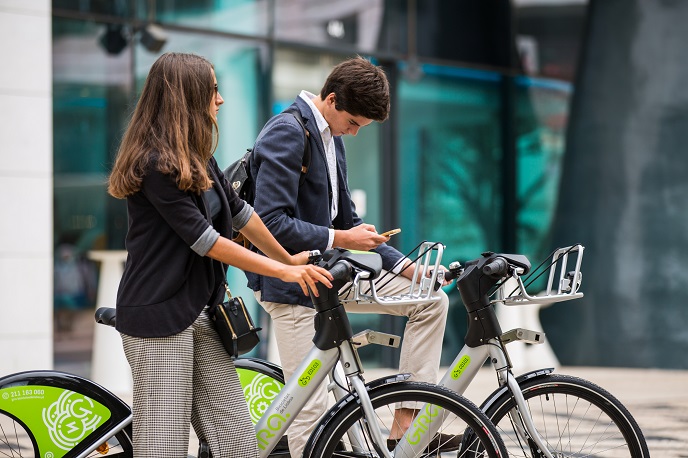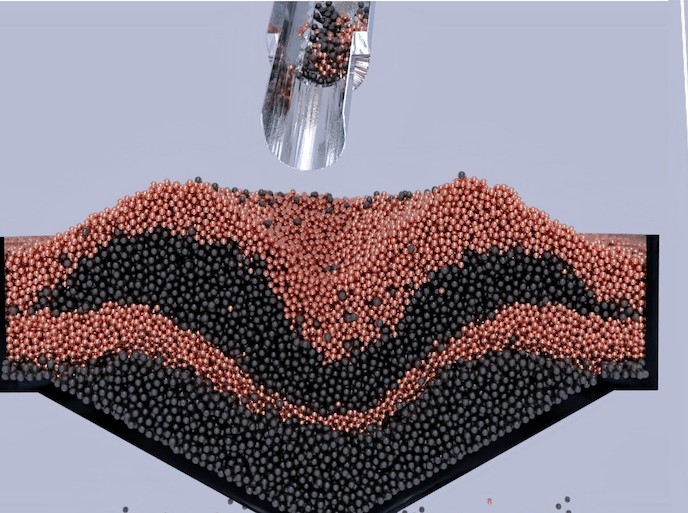Boosting green employment in the Spanish construction industry
Reducing the construction industry’s CO2 emissions will require structural changes to the sector, including the development of new techniques, new materials and new skills. This is an employment and market opportunity as much as a challenge, which also benefits the environment. To help embrace the opportunities in Spain, the EU-funded Construye2020_Plus(opens in new window) (A new boost for green jobs, growth and sustainability) project has been developing formal and informal training for green construction methods. “Our cross-cutting approach has engaged experts to share different perspectives and collaborative solutions, linking areas of construction that might not otherwise work together. This has helped raise public awareness of sustainable buildings – crucial to developing a market for them,” explains project coordinator Esther Rodriguez from the Construction Labour Foundation(opens in new window). The project created a qualification for energy auditors – aligned with the EU’s implementation of the Energy Efficiency Directive(opens in new window), two energy efficiency courses (as well as updating existing ones) and a proposal for a green skills recognition system. It also completed a virtual information sharing campaign reaching hundreds of people.
Training and accreditation
Construye2020_Plus adopted the quintuple helix innovation model(opens in new window), engaging key stakeholders from academia, business, government, civil society and environmental interest groups, to share knowledge, expertise and opportunities. These experts identified key construction industry challenges, proposing a training road map for the implementation of 30 recommended solutions for greater energy efficiency, renewable energy sources and nearly zero-energy buildings (NZEBs). The vocational and educational training developed by Construye2020_Plus includes two short cross-cutting courses, piloted in 2021. The ‘energy efficiency for operators’ programme attracted 130 students through six online and two face-to-face courses in Bilbao and Madrid. A further 186 students attended the ‘energy efficiency for middle managers’ course, with six online courses and three face-to-face in Seville, Madrid and Palma de Mallorca. On completion, participants received basic and intermediate ‘Green tag’ diplomas(opens in new window). In a satisfaction survey, participants rated both courses 3.5 out of 4. The project also updated six courses under the umbrella of the BUILD UP Skills initiative(opens in new window) including those for laws and regulations, materials and construction solutions and the NZEB approach. Taking advantage of recent digitalisation advances in the construction industry, Construye2020_Plus introduced a lean construction and building information modelling (BIM) methodology into their training. “As efforts to digitalise construction workflows are not yet widespread in Spain, we only introduced these concepts,” adds Rodriguez. “The objective is not to deliver full training in a specific trade, but to familiarise tradespeople with the range of sustainable construction techniques available.” Included in the National Catalogue of Specialised Training, 1 700 workers registered to take part in these courses in 2021. To develop the energy auditor qualification, the team followed the methodology established by the Spanish National Institute of Qualifications(opens in new window) (website in Spanish), a project partner. The legislation(opens in new window) (web page in Spanish) was officially published by the state in January 2022. “This professional qualification satisfies one of the legal conditions for becoming an energy auditor in Spain. It now provides a framework for formal vocational training certificates, such as the ‘Advanced Vocational Training Specialisation Course in Energy Auditing’, which trains specialists for emerging sectors with high employability prospects,” says Rodriguez.
Shifting mindsets
Project results have been promoted within European training networks such as REFORME(opens in new window) and CPD(opens in new window). Project partners have also participated in three BUILD UP Skills EU Exchange(opens in new window) events, most recently in November 2022, where they shared expertise about skills certification, especially the Green tag system. To further promote the benefits of energy efficiency in buildings, the team pivoted their proposal for a travelling awareness raising campaign to an online ‘Virtual Route’(opens in new window). By the end of 2021, they had delivered 15 webinars promoting sustainable construction principles and outlining their importance for upcoming funding opportunities. The campaign facilitated 100 public and private construction sector panel discussions, reaching over 720 attendants. “We want to achieve a generational shift so that green construction jobs become more attractive to youngsters, while helping to create market demand for sustainable construction,” notes Rodriguez. Some Construye2020_Plus partners continue working together within the Construye 2030(opens in new window) project, under the LIFE Clean Energy Transition sub-programme(opens in new window), as a continuation of the BUILD UP Skills initiative. The principle objective is to update the 2012 Status Quo and Training Roadmap(opens in new window).







